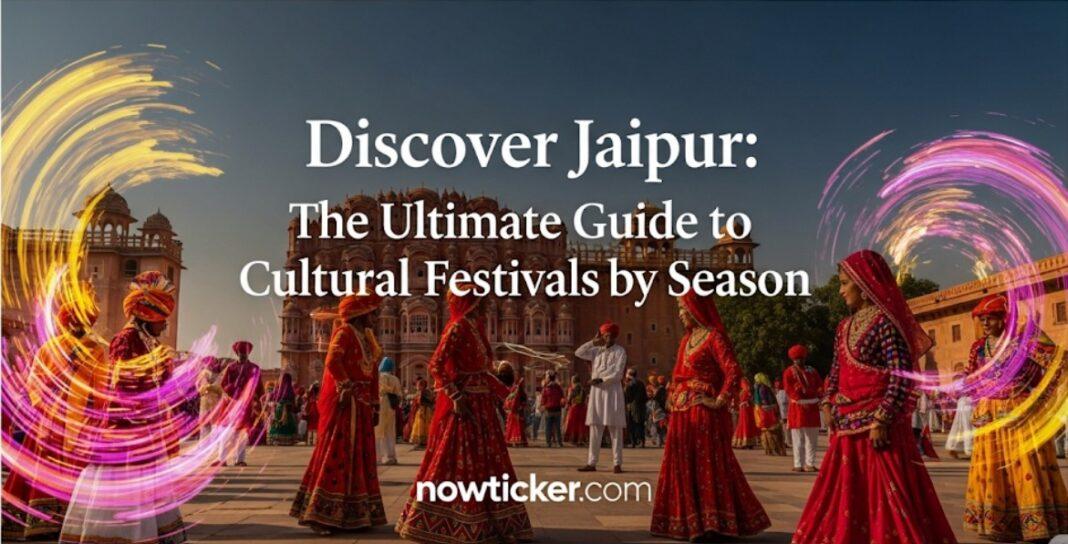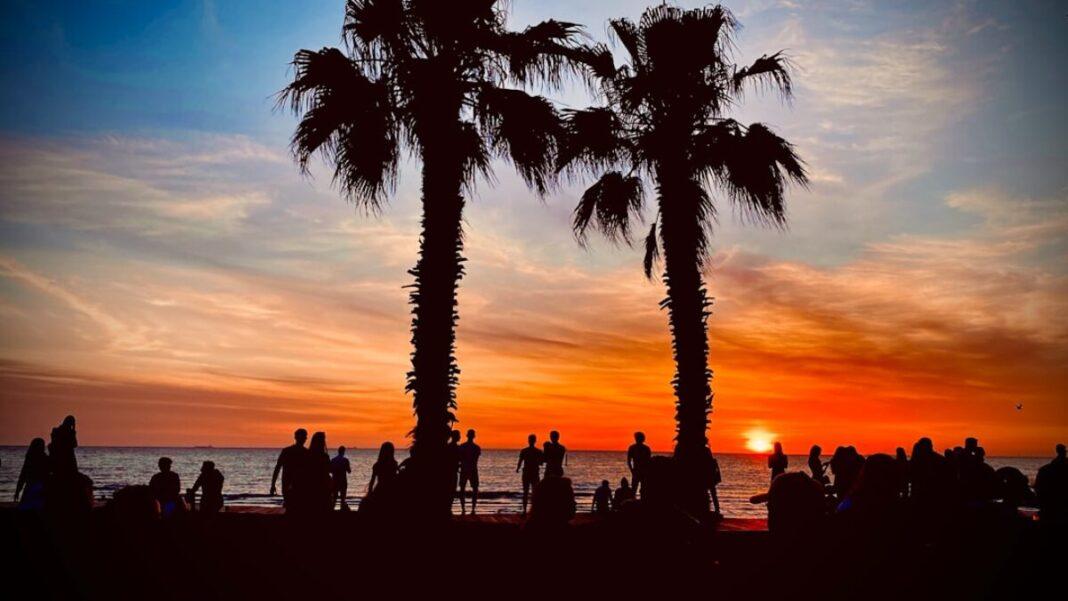Contents
Introduction
Jaipur, the capital city of Rajasthan, India, often known as the "Pink City," is a treasure trove of cultural heritage, vibrant festivals, and monumental architecture. The city’s ochre-hued buildings, bustling bazaars, and historic landmarks tell tales of its rich royal history. Cultural festivals in Jaipur are not just events; they epitomize the spirit of the city, drawing in tourists and locals alike to celebrate traditions, art, music, and spirituality. This guide will explore the major cultural festivals across various seasons, providing you with insights, personal experiences, expert opinions, and practical tips to help visitors and locals enjoy these vibrant celebrations.
Spring Festivals in Jaipur: A Season of Color and Joy
Spring in Jaipur is heralded by the festival of Holi, the festival of colors, which typically falls in March. Holi represents the victory of good over evil, with roots in Hindu mythology. The city comes alive with people throwing colored powders and water at each other, dancing to traditional music, and celebrating camaraderie. A recent visitor, Priya Sharma, shared, “Celebrating Holi in Jaipur was an unforgettable experience. The streets were filled with laughter, music, and colors, creating a warm and joyous atmosphere.”
In addition to Holi, the Jaipur Literature Festival, held each January, is a premier event that attracts literary figures from around the globe. The festival is a melting pot of ideas, literature, and culture, featuring panel discussions, book launches, and musical performances. Author and journalist Shobha De remarked, “The Jaipur Literature Festival is not just about books; it’s a celebration of diverse voices and thought-provoking discussions.”
While attending these spring festivals, practical tips include:
- Plan Ahead: Hotels and accommodations fill up quickly during festival seasons, so ensure bookings are made in advance.
- Local Participation: Engage with local communities to truly immerse yourself in the celebrations.
Summer Festivals in Jaipur: Embracing the Heat of Tradition
As temperatures rise, the Teej Festival in July marks the arrival of monsoon. Teej is celebrated mainly by women, symbolizing the reunion of Lord Shiva and Goddess Parvati. Women dress up in traditional attire, sing folk songs, and participate in various games and rituals. This festival is narrated through flavors, as sweets and specialty dishes such as ghewar are prepared for the occasion.
Ajay Singh, a local historian, states: "Teej is not just a festival; it’s a showcase of our cultural heritage. The rituals performed during this festival highlight the importance of family, love, and devotion." Attending the Teej Festival offers visitors a unique opportunity to interact with local customs, explore traditional cuisine, and witness vibrant decorations and rangolis adorning the streets.
Practical tips for summer festivals include:
- Hydration: The heat can be intense; always carry water and stay hydrated.
- Dress Comfortably: Lightweight, breathable clothing is ideal for coping with the summer heat.
Autumn Festivals in Jaipur: A Feast of Lights and Heritage
Autumn ushers in the festive season, with Diwali, the Festival of Lights, taking center stage in October or November, depending on the lunar calendar. Diwali symbolizes the victory of light over darkness, with intricate rangoli designs embellishing doorways and homes. The city’s markets buzz with activity as locals shop for new clothes, sweets, and decorations.
Through the lens of tradition, Jaipur’s celebrations incorporate both ancient rituals and modern revelries. Urban planner Anjali Arya comments, “Diwali in Jaipur uniquely combines tradition with contemporary enthusiasm, with events ranging from fireworks displays to cultural performances.”
Another noteworthy event during this season is the Kite Festival, celebrated on Makar Sankranti in January. This exhilarating festival sees the sky filled with colorful kites, as residents take to their rooftops to engage in friendly kite-flying competitions. Ashish Jain, a kite enthusiast, shares, “The thrill of kite-flying during Makar Sankranti is unmatched. It fosters a sense of community, bringing together friends and families.”
When participating in autumn festivals, consider the following tips:
- Explore Local Markets: Take the time to explore Jaipur’s bazaars for authentic handicrafts and sweets.
- Respect Traditions: Understand the significance of rituals and participate respectfully.
Winter Festivals in Jaipur: Celebrating Heritage and Music
As temperatures cool, winter in Jaipur is characterized by the Jaipur International Film Festival (JIFF), typically held in January. This festival celebrates cinema from across the globe, making it a haven for film enthusiasts. Film critic Rajeev Masand remarked, “JIFF spotlighting independent films creates a unique space for aspiring filmmakers and cinephiles alike.”
Additionally, the Shekhawati Festival showcases the region’s rich arts, crafts, and culture. This festival includes exhibitions, workshops, folk performances, and a chance to admire the beautiful frescoes that adorn the region’s havelis. Local artist Rani Sharma mentions, “The Shekhawati Festival is not just an exhibition; it is a revival of our cultural heritage, promoting the art and skills of local artisans.”
For a successful winter experience, here are a few practical tips:
- Layer Up: While days can be warm, nights might require a jacket, so dress in layers.
- Book Screening Tickets: For film festivals, pre-booking tickets is advisable to avoid last-minute hassles.
Practical Tips for Festival-Goers
Navigating festivals in Jaipur can be exhilarating yet daunting. Here are some overarching tips to enhance your experience:
Cultural Sensitivity: Understanding local customs and traditions is crucial. Engage with the community respectfully and be mindful of religious practices.
Transport: Use local transport options like tuk-tuks or rideshare services to navigate the city efficiently. Traffic can be congested, especially during festivals.
Social Media and Networking: Follow local events on social media platforms for real-time information, updates on events, and networking opportunities with fellow festival-goers.
- Food and Health Precautions: While indulging in local cuisines, choose eateries that maintain cleanliness. Be cautious with street food, especially if you have a sensitive stomach.
FAQs
1. What is the best time to visit Jaipur for festivals?
Spring and autumn are ideal, as cities celebrate significant festivals like Holi and Diwali during these seasons.
2. Are festivals in Jaipur suitable for families?
Most festivals are family-friendly, with activities suitable for all ages. Cultural and heritage festivals especially encourage family participation.
3. How can I immerse myself in the local culture during festivals?
Engage with local community members, participate in traditional activities, and try local cuisine to experience the culture fully.
4. Are there any safety concerns during festivals?
While Jaipur is generally safe, it’s advisable to stay aware of your surroundings, especially in crowded areas. Trust your instincts and avoid isolated places.
5. Is it necessary to dress traditionally during festivals?
While not mandatory, dressing in traditional attire can enhance your experience and show respect for local customs.
Conclusion
Jaipur’s cultural festivals are a vibrant tapestry of tradition, joy, and community. The spirit of these events is rooted in the history and heritage of the city, offering residents and visitors alike a chance to connect with the rich cultural fabric of Rajasthan. Whether you’re splashing colors during Holi, flying kites in January, or celebrating Diwali with lights and sweets, each festival reveals a different facet of Jaipur’s vibrant identity.
With the insights provided in this guide, you are now equipped to navigate the colorful world of Jaipur’s festivals, ensuring a memorable experience. Embrace the culture, participate with an open heart, and create lasting memories in this enchanting city, where every festival is an invitation to celebrate life in all its hues.



